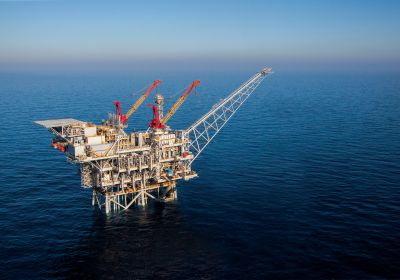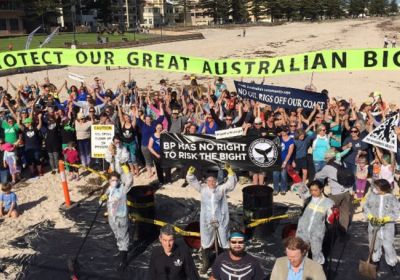-
-
-
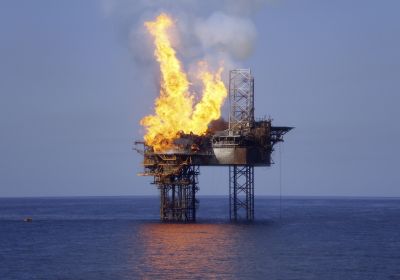 The South Australian government has finally admitted that oil drilling in the Great Australian Bight is a risk, with two government reports highlighting the risks of spills and shipping and threats to marine life. The Department for Planning, Transport and Infrastructure’s South Australian Marine Spill Contingency Action Plan admits: “The intended drilling activities increases both the South Australian and West Australian risk profile with respect to possible spills from the rig itself as well as an increase in shipping movements to and from the rig.”
The South Australian government has finally admitted that oil drilling in the Great Australian Bight is a risk, with two government reports highlighting the risks of spills and shipping and threats to marine life. The Department for Planning, Transport and Infrastructure’s South Australian Marine Spill Contingency Action Plan admits: “The intended drilling activities increases both the South Australian and West Australian risk profile with respect to possible spills from the rig itself as well as an increase in shipping movements to and from the rig.” -
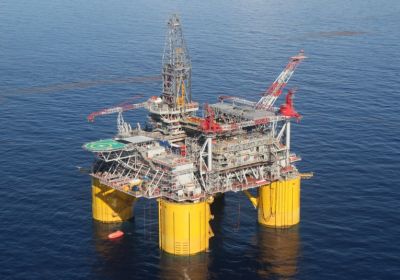 The Senate will shine a much-needed spotlight on BP’s plans to drill for oil in the Great Australian Bight after it voted for an inquiry into the matter. The inquiry will report back by May 12. The Senate’s Environment and Communications References Committee will look into the potential environmental, social and economic impacts of BP’s planned exploratory oil drilling project and any future oil or gas production in the Great Australian Bight.
The Senate will shine a much-needed spotlight on BP’s plans to drill for oil in the Great Australian Bight after it voted for an inquiry into the matter. The inquiry will report back by May 12. The Senate’s Environment and Communications References Committee will look into the potential environmental, social and economic impacts of BP’s planned exploratory oil drilling project and any future oil or gas production in the Great Australian Bight. -
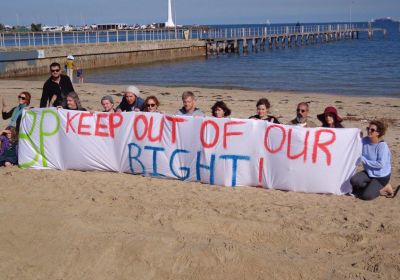
About 100 people rallied at Glenelg in Adelaide to protest against plans by oil company British Petroleum to explore for oil in the Great Australian Bight.
oil drilling
oil drilling
